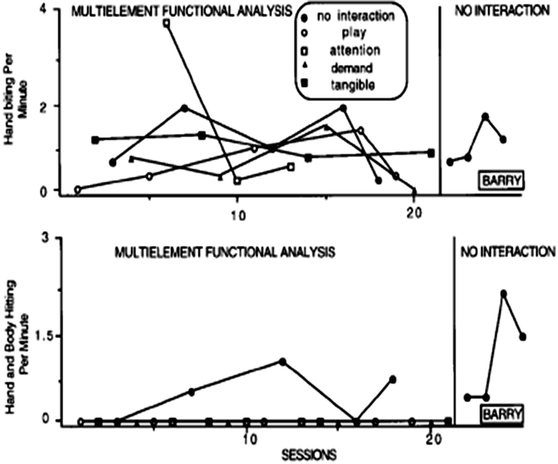The experimental analysis approach comprises a research method in psychology and behavioral sciences. The process is essential in studying the impacts of different variables on behavior. It entails manipulating independent variables to observe their effects on dependent variables and other relevant factors that could impact the outcomes. In a typical experimental analysis process, the researcher opts for a specific procedure to derive the results. Procedurally, the steps include defining the research question, selecting participants, assigning participants, manipulating independent variables, measuring dependent variables, and analyzing the results. Depending on the goal’s researchers seek to achieve, they can opt for different experimental analysis methods of problem behaviors. One of the key models used in the experimental analysis method includes Iwata’s Full Functional Analysis. ( If you need a similar experiment; contact PhD dissertation helpers.)
Part 1: Selection of the Experimental Design
Iwata’s Functional Analysis is a method used in determining the function or purpose of challenging behaviors in individuals with developmental challenges. The method comprises a systematic assessment of such attributes as antecedents, behavior, and consequences to identify the environmental factors that maintain the behavior. Iwata’s full functional model uses a structural approach comprising four phases. The first phase is the assessment of antecedents and consequences. This first step entails identifying the effects typically attributed to the challenging behavior being investigated. This phase is accomplished by conducting interviews with caregivers or direct investigations with the individuals. The second phase is the test condition, in which behavior is observed under specified test conditions to manipulate potential functions of behavior. Some test conditions include attention, tangible items, escape, and sensory stimulation. The third phase of the analysis process is assessing the test result. This stage comprises evaluating the test results to determine the function of behavior (Edwards et al., 2021). It is essential to note that if the behavior is assessed more frequently in one test condition than others, the most probable outcome is that the behavior might be related to that condition. The last phase of the situation is the treatment phase, comprising the development and implementation of the treatment plan. This part of the analysis is accomplished based on the results drawn from the functional analysis process. Based on these considerations, it is essential to note that the treatment plan is designed to replace the challenging behavior with more appropriate behavior.
Upon choosing Iwata’s Full Functional Analysis approach, it is essential to consider the benefits and limitations associated with the approach. One of the benefits is that the approach aids in identifying the underlying function of behavior (Imamura et al., 2019). Because of this attribute, it is essential in determining the function and purpose of the challenging behavior. The second benefit is its aspect of individualized treatment, as it allows for developing an individualized treatment plan that targets specific populations. Based on this aspect, the approach can lead to more effective outcomes than general approaches. Another key benefit of the approach is the rigorous scientific aspects of Iwata’s experimental analysis following a systematic approach to understanding behavior. Lastly, the approach is essential, considering that it relies on direct observation and measurement of behavior.
On the other hand, it is integral to consider the limitations associated with Iwata’s Experimental analysis. One of the cons of the method is that it is time-consuming, considering that performing a functional analysis process requires certain settings. Second, the approach requires specialized training and expertise, which might limit the effective implementation of the entire process. The approach has also been criticized because of ethical considerations, as it entails the manipulation of variables that evoke challenging behavior (Imamura et al., 2021). Lastly, the approach is attributed to limited generalizability, considering that the functional analysis process is typically performed in controlled laboratory settings, which might limit the generalizability of real-world situations.





